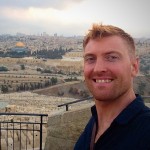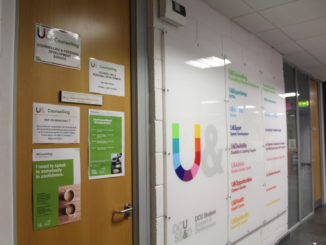
Chaplain of the Inter Faith Centre DCU, Philip McKinley, doesn’t quite fit the mold or box one might imagine. He is a vibrant 34-year-old with a penchant for coffee and a sincerity and warmth that becomes both infectious and captivating, very quickly.
His plan was to study film but a trip to Uganda at the age of 20, while the country was fighting the terror of Joseph Kony the Lord’s Resistance Army, became life altering. A phone call from his mum to say he had enough CAO points to get his college place put his choices into perspective. When he told him mother he planned to study Theology, she said: “Get back here right now, you are mad.”
McKinley, who was appointed last November as Chaplain of the Inter Faith Centre at DCU, said understanding religions and not boxing people into categories, is a vital component of progression: “Northern Ireland, is that a religious problem? I would argue that it’s a negative mixing of religion politics, social and culture, you can’t try and say issues in Northern Ireland have nothing to do with religion, its archaic because the evidence is clearly there, an example being the UVF (Ulster Volunteer Force) whose motto is ‘For God and for Ulster.’”
Asking if religion is part of the problem of terrorism, McKinley said it is the wrong way to look at the issue: “I think the question then becomes, if religion is part of a problem and you then have to find what that problem is and it differs in different ways then how can it also be part of the solution.”
He questioned how as a society we can address and develop an understanding of what he calls ‘The other’. “We can’t get locked into caricatures. On the other hand it is naive to say there is not a problem between traditional religious values and western European secular liberalism, there are cultural divides and they express and manifest themselves in different ways, and a very extreme manifestation is something like Charlie Hebdo, with one area of violent radicalised men who claim to be Muslim, versus one very particular expression of freedom of speech,” he said.
McKinley is a realist and knows religion has caused violence, but that true religion should never produce violence as at its core it’s about peace and light. The Inter Faith Centre and the people who occupy it allow the conversation to move across different beliefs in a very real way. “One of the fundamentals of interfaith dialogue is the dialogue of life, we drink coffee together, we play jigsaws or games, its real life people sitting around a table. Every hour in here there are stunning examples of the dialogue of life. Because your attitude is profoundly different once you know ‘the other’,” he said.
Orla O’Drioscall




Leave a Reply